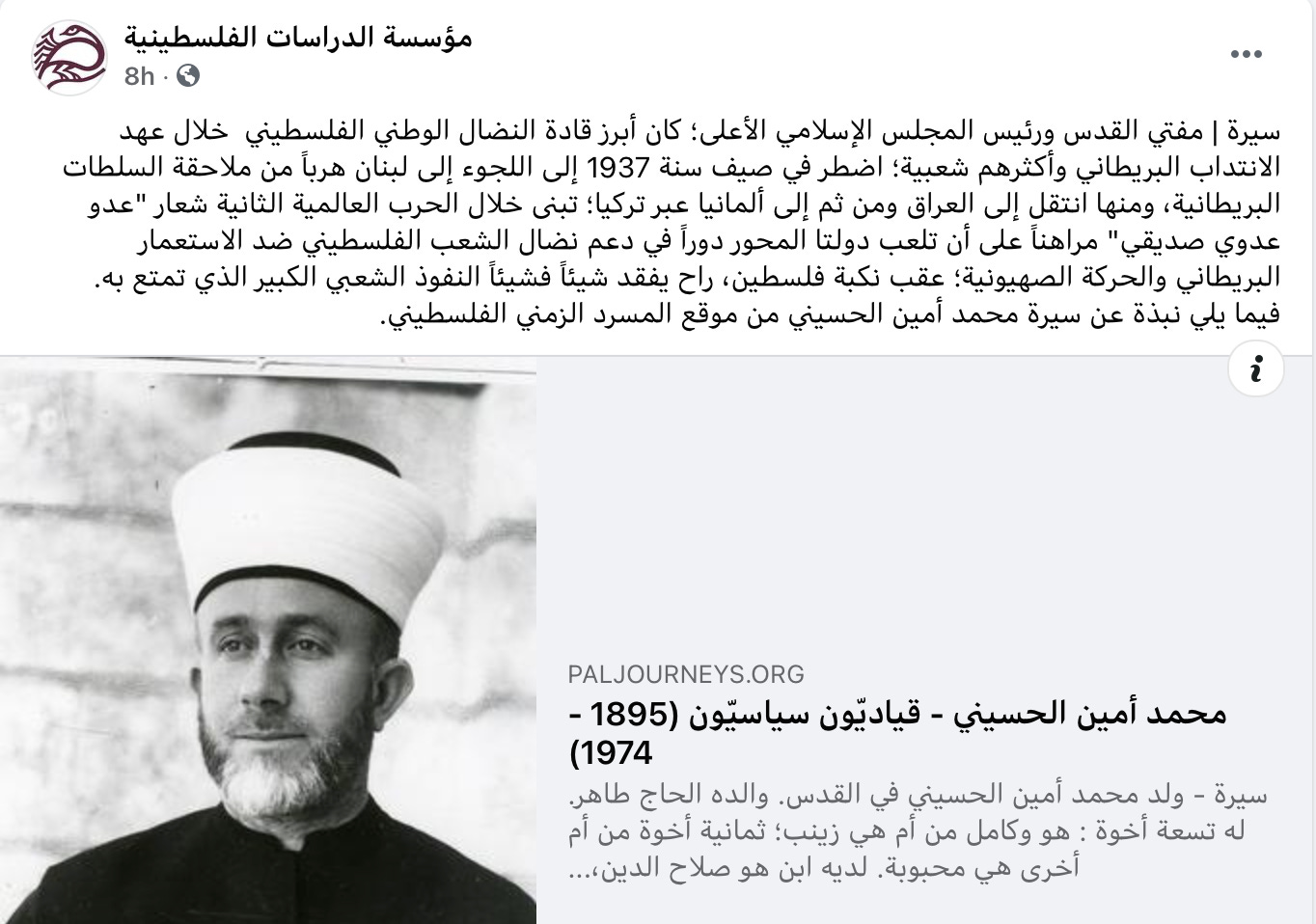Will Palestinians denounce Mufti Hussaini, and Hitler?
Palestinian institute describes Hussaini’s alliance with Hiltler as “enemy of my enemy”
The Institute for Palestine Studies (IPS) shared the biography of Amin Al-Hussaini (1895-1974), the Mufti of Jerusalem and the Palestinian leader whose reputation was tainted for his notorious cooperation with history’s most brutal tyrant, Adolf Hitler.
The IPS described Hussaini as such: “He was one of the most prominent leaders of the Palestinian national struggle during the British mandate, and (he was) the most popular.” To justify Hussaini’s alliance with Hitler, without naming the German tyrant, the IPS added: “During WWII, (Hussaini) raised the slogan ‘the enemy of my enemy is my friend’.” The institute also said that Hussain “bet that the two Axis countries would play a role in supporting the struggle of the Palestinian people against British colonialism and the Zionist movement.”
That the Palestinian institute does not denounce Hitler — and anyone who cooperated with him, outright and without any justification — is a huge ethical and moral failure. Since the dawn of history, nations formed alliances in ways that served their interests, and that’s understandable.
Hitler, however, was not an average autocrat with whom an alliance was debatable. Hitler was a psychopathic leader who unleashed endless evil among his followers. Believing that other ethnicities or races were inferior and deserved to be exterminated belonged to Medieval times. But by the Twentieth centuries, such ideas had become morally reprehensible. That some Palestinians still believe, today, that an alliance of expediency with Hitler was justifiable, is a problem.
Now the question is this: Why does IPS still support Hussaini, even though some of its most influential leaders, such as the Chicago academic activist Rashid Khalidi, do not think highly of Hussaini?
In his most recent book, the picture that Khalidi painted of Hussaini was as such: “[A] bitter split between those loyal to the mufti… and the mufti’s opponents, led by the former Jerusalem mayor Raghib Al-Nashashibi… resulted in hundreds of assassinations in the late 1930s [and] gravely sapped the strength of Palestinians.”
Al-Nashashibi was forced into exile in Beirut in 1938, “after his life was threatened and his house in Ramleh burned with the loss of all his books and papers. This was undoubtedly the work of the mufti’s men,” according to Khalidi.
So Mufti Hussaini was not only someone who did not see the moral failure in allying with Germany’s Hitler, he was also a charlatan who threatened the lives of his political rivals in Jerusalem and sent them into exile. And yet, the IPS celebrates Hussaini’s life as one of the founding fathers of the Palestinian national movement. Until those Palestinians start denouncing such characters and learning from their mistakes, their movement will remain as ethically and morally challenged as it is today.




Their movement is ethnically and morally challenged? Never heard that before, but it's 100% true.